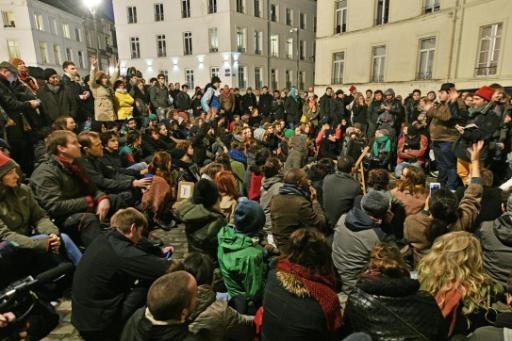Following the “Nuits Debout” (Nights Up) events held in several French towns and cities against the El Khomri law around the reform of the Code du Travail (French employment laws), more than 200 individuals, mainly youngsters, met for a second consecutive gathering in Brussels, on Thursday evening from 7 p.m. They met in the Mont des Arts area of Brussels. Around 500 members of the public saw the livestream via @NuitDeboutBXL on Twitter. The event will be repeated on Friday evening.
One of the reasons evoked for the advent of this movement is the lack of financial affluence within the population. Even without the El Khomri law in Belgium, as a means to channel citizen opposition, Belgian youngsters recalled measures more widely disseminated that were thus instigated here as serious issues; from pressure upon workers to the exclusion of the unemployed, as well as restrictive measures for benefit recipients.
Those taking the microphone largely dwelt upon universal benefit (the Belgian form of the UK's single universal credit), a form of basic income which could in their view, be financed by monetary reform. Preservation of social security was laid down as a requirement. The reduction in working time was advanced so as to allow a better distribution of this and to leave open to workers the scope for both thought and and invention. The idea of better working practices also found a strong voice in the prospect of leaving a system in which workers are exploited.
For others, the economic model for growth within a world with limits should come to an end immediately. Besides capitalism and socialism, presented as tools which respectively leave the business of wealth distribution to either the individual or the state, the concept of the “associative economy”, initially evoked by the philosopher Rudolf Steiner, has appeared as a third way which could be largely developed in the current interconnected world.
The policy decision-making process was also criticised. Concurrent office holding was perceived as an attack upon the quality of political work. Amongst other ideas it was suggested that a so-called “house of citizens” be set up to influence decision-making by elected politicians.
(Source: Belga)

